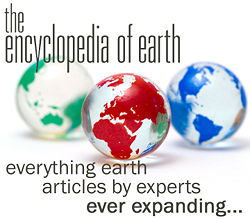User:Daniel Mietchen/Talks/COASP 2010/Notes
Background

Do journals provide sufficient contextualization for research?
- For technical reasons, publishing was historically a separate step, performed about once per iteration of the research cycle
- Publishing every relevant bit of information immediately at each step is technically feasible now, and the remaining hurdles are cultural ones.
- Wikis allow for systematic linking and thus enhanced contextualization (sidenote: some have argued that links are distracting)
- Overview of the evolution of wikis and wiki-like environments
- Mentions MediaWiki plugin for Wordpress
- Etherpad
- Google Docs
Wikis as platforms for science communication
- Wikis can be used, in principle, for any aspect of scholarly communication, as detailed in this comparison of wiki- and paper-based communication systems and the related blog post.
- Examples exist for all steps of the research cycle, except successful applications to major funders (see this overview for some attempts)
- Benchmark: English Wikipedia
Wikis as platforms for scholarly publishing

Encyclopedia of Earth — a wiki with overview articles reviewed by experts, available under CC-BY-SA
- The idea is not new — WikiSciencePublication stated in 2006:
- "Somewhere at the fringe of science, someone will start using wiki publishing for science publishing."
- See also Wikiversity:Publishing original research
- Most variants of wiki software can handle user rights in great detail, so as to allow implementation of basically any kind of peer-review system
- Lab reports: Lab reports
- Conferences: Stand-alone site / contextualized schedule / talks, contextualized talks and Posters (possibly also as clickable imagemaps, like here), presentations
- Research papers: Accompanied by wiki article (progress report), contextualized on-wiki, links to wikis amongst other sources, integrated into database
- Publication lists (incl. supplementary materials and in principle direct links to the raw data)
- See also CoLabScience
- built-in article-level metrics at bottom of page and via What links here (which could also be used for other pages, e.g. those hosting images, references, or datasets), author-level metrics via Special:Contributions, further aggregation possible (e.g. at the level of research projects, labs or thematic workgroups)
- Knol shares some aspects with wikis and blogs and is already in use for PLoS Currents.
Wikis as platforms for Open Access publishing
- The majority of wiki platforms are open access by default
- Stresses the re-use part of CC licenses (e.g. for images) — an aspect of OA publishing that does not receive much attention outside research blogs (cf. detailed discussion with respect to the American Physical Society, arxiv and Quantiki, and the final outcome: APS authors keep copyright over derivative works). While the main purpose of such licensing is certainly to make the research available to other specialists working in the field, they also make the research available to scientists from other fields (not just in academia) as well as non-scientists (teachers, entrepreneurs, media, patient groups or hobbyists).
- Examples: Gyrification, Surface-based morphometry and Chordoma
- Also note that Fig. 3 of http://dx.doi.org/10.3389/neuro.11.025.2009 and Fig. 2(III) of http://dx.doi.org/10.3389/fnins.2010.00020 explain the same thing, original to neither papers
- Incompatibility of wikis and closed-access publishing
Quality assessment
In principle, any system of peer review can be implemented on a wiki, by detailed management of user rights: The usual single-blind as well as double-blind or open peer review, with the reviewers or even authors always or optionally, temporarily or permanently remaining anonymous, with simple accept/ revise/ reject decisions or interactive two-stage or multi-stage discussions, in public or hidden from it (possibly even in part), before and/ or after formal publication.
Some wiki examples:
- English Wikipedia (Flagged Revisions, WikiTrust, Wikipedia:Pending changes)
- Scholarpedia
- Encyclopedia of Earth
- Citizendium
Some non-wiki examples:
- Copernicus journals
- PLoS journals
- Frontiers journals
- BMC journals
- Semantic Web journal
- Rejecta Mathematics
- WebMedCentral
Business models
- Main ones: author-pays, (partial) subscription, philanthropy, advertising, premium services
Opportunities
- Article-specific Job ads (e.g. via subpages)
- Wiki for Calls For Papers
- Post-publication peer review: Faculty of 1000, The Third Reviewer, Rejecta Mathematica
- Wiki export, or standardized XML or HTML output that could be imported to a wiki via some xml2wiki or similar converters
- Image search (example) and annotation
- Search by license (prototypes: journals, images)
- Integration of non-text media with text (just like images; non-wiki audio example)
- Also for references
Notes
Essential elements of science publishing:
- Research
- Documentation
- Making things public
- Integration with previous and future knowledge
- Discussion
Quotes
From the JoPM peer review discussion
Peter Frishauf, founder of Medscape (3:29-3:44 in part 4):"Wikipedia is probably the most robust Petri dish we have for actually studying the process of words and contributions, because it is auditable."
Elizabeth Wager of Jefferson et al., 2002 (10:37-10:56 in part 4): "So, we had the idea that you do your systematic review before you do your research; you do your research, and then if you haven't changed much, you haven't really made a big impact, whereas if you've actually shifted things one way or the other and made it more precise then you have."
Peter Sefton (The next wave in scholarly word processors?): "what I think we need in scholarship is the web, but editable"
Chris Gutteridge (in 1st comment on Sefton's post): "Better still, if you assert something said in another paper, sod the citation, transclude the relevant text, with a full electronic citation allowing you to verify it."
